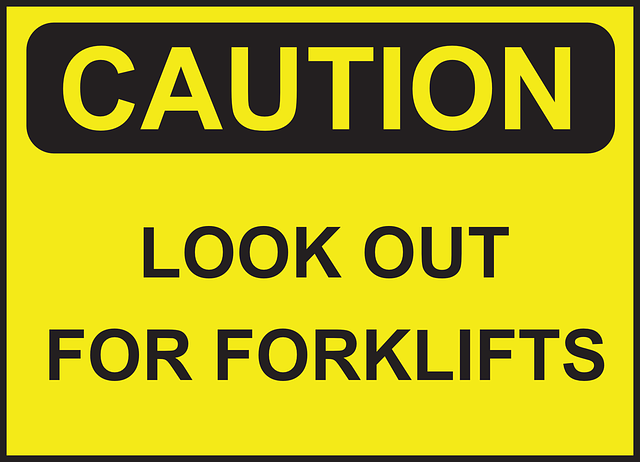Background checks for childcare providers are essential tools in ensuring child safety within the industry. These checks go beyond basic qualifications to reveal crucial historical information like criminal records and employment history, helping identify potential risks. Comprehensive screening involves multi-stage processes such as applicant forms, credential verification, drug testing, and mental health evaluations. The ultimate goal is to create robust profiles that prioritize child safety, ensure industry compliance, and maintain caregiver credibility. Legal frameworks in many regions mandate these checks, and implementing robust credential verification systems further enhances protection. Regular policy updates and staff training are crucial for mitigating risks and fostering an environment where child safety is paramount.
“In an era where ensuring child safety is paramount, background checks play a pivotal role in safeguarding our youngest members of society. This article delves into the critical aspect of enhancing child protection through comprehensive background screenings for childcare providers. We explore the significance of these checks, from understanding their impact on child safety to implementing effective verification processes.
Covering topics like daycare worker qualifications, legal obligations, and facility security measures, it serves as a guide for navigating the essential components of childcare industry compliance.”
- Understanding the Importance of Background Checks in Childcare
- The Process of Conducting Comprehensive Background Screenings
- Key Elements to Consider for Effective Daycare Worker Verification
- Legal and Regulatory Frameworks for Child Safety Background Checks
- Implementing Caregiver Credential Verification Systems
- Enhancing Facility Security Measures: Best Practices for Compliance
Understanding the Importance of Background Checks in Childcare

Background checks play a pivotal role in ensuring child safety within the childcare industry. With children spending significant time in daycare facilities and being entrusted to caregivers, thorough screening processes are essential to safeguard their well-being. These checks go beyond verifying basic credentials; they uncover relevant information about an individual’s history, such as criminal records, past employment, and any potential risks or concerns. By implementing comprehensive background check policies, childcare providers can maintain a secure environment, protect vulnerable children, and foster public trust.
Childcare provider screening is a critical component of compliance in the industry. Daycare worker verification ensures that only suitable individuals with proven reliability and integrity are hired. Caregivers’ credentials must be meticulously checked to match their provided information, leaving no room for false or misleading details. This meticulous process contributes to the overall security of childcare facilities, enabling parents to feel confident about their children’s safety and well-being under professional care.
The Process of Conducting Comprehensive Background Screenings

Background checks play a pivotal role in ensuring child safety within the childcare industry. The process begins with identifying relevant information and sources for the background screening. This includes verifying the caregiver’s identity, criminal history, education, previous employment, and any disciplinary actions or lawsuits. Reputable screening services often utilise comprehensive databases and government records to gather this data, ensuring accuracy and privacy compliance.
Comprehensive screenings involve multiple stages. Firstly, a detailed application form is completed by the childcare provider, detailing their work experience, educational background, and personal references. This is followed by a thorough review of these credentials, cross-referencing them with verified sources. Background checks may also include drug screening, mental health evaluations, or additional security measures based on the facility’s needs and local regulations. The goal is to create a robust profile of each applicant, fostering a safer environment for children in daycare settings.
Key Elements to Consider for Effective Daycare Worker Verification

When it comes to safeguarding our youngest members of society, every detail matters in background checks for childcare providers. Effective daycare worker verification involves a multifaceted approach that goes beyond simple screening. Key elements include comprehensive child safety background checks, delving into criminal histories, and verifying credentials like education, certifications, and previous employment. This process is crucial for ensuring the safety and well-being of children in the facility.
Furthermore, compliance with childcare industry standards is paramount. Caregivers must undergo rigorous screening to check for any red flags or risky behaviors that could compromise child safety. Regular updates to these checks are essential as new information can emerge over time. The goal is to foster a secure environment where parents trust that their children are in capable and reliable hands, ensuring peace of mind while they’re away.
Legal and Regulatory Frameworks for Child Safety Background Checks

In many regions, legal and regulatory frameworks have been established to prioritize child safety and protect young minds. Background checks for childcare providers are a pivotal component of these measures, ensuring that those interacting with children have no disqualifying factors or criminal histories that could pose risks. The process involves thorough verification of caregiver credentials, encompassing both educational qualifications and prior employment records, to ensure they meet the necessary standards.
Regulatory bodies often mandate specific procedures for daycare worker verification, including comprehensive background checks, to maintain childcare industry compliance. These checks help uncover any potential red flags, such as past misdemeanor convictions or unresolved legal issues, which could impact a provider’s ability to create a secure environment for children. The goal is to implement robust security measures within childcare facilities, fostering trust among parents and ensuring the well-being of their children.
Implementing Caregiver Credential Verification Systems

Implementing Caregiver Credential Verification Systems is a pivotal step in enhancing child protection within the childcare industry. By adopting robust screening processes, such as comprehensive background checks and verification of caregiver credentials, childcare facilities can ensure that their staff members meet stringent safety standards. This proactive approach allows for the early identification of potential risks or issues, thereby safeguarding children under their care.
Effective credential verification involves thorough examination of an individual’s history, including criminal records, previous employment in childcare settings, and relevant training or certifications. These checks enable facilities to make informed decisions, prevent individuals with inappropriate histories from accessing vulnerable children, and foster a culture of accountability and trust among caregivers. In terms of childcare provider screening, such systems serve as a powerful tool for maintaining the highest levels of child safety and securing the well-being of every child in their care.
Enhancing Facility Security Measures: Best Practices for Compliance

To enhance child protection in facilities like daycares and schools, implementing robust security measures through comprehensive background checks is paramount. These checks should not only verify the identity and credentials of childcare providers but also scrutinize their history for any potential red flags that could pose a risk to children’s safety. Best practices include using reliable, government-approved databases for criminal record and child abuse clearances, ensuring compliance with local, state, and federal regulations, and adopting a multi-layered verification process. This might involve cross-referencing information from multiple sources, including employment references and educational institutions.
Compliance in the childcare industry necessitates proactive measures to mitigate risks. Regular updates on background check policies and procedures are essential to keep up with evolving legal requirements and emerging threats. Additionally, training staff on recognizing and reporting suspicious behavior contributes to creating a safe environment for children. Facility security can be significantly improved by integrating these best practices into daily operations, fostering an atmosphere where child safety is the utmost priority.
